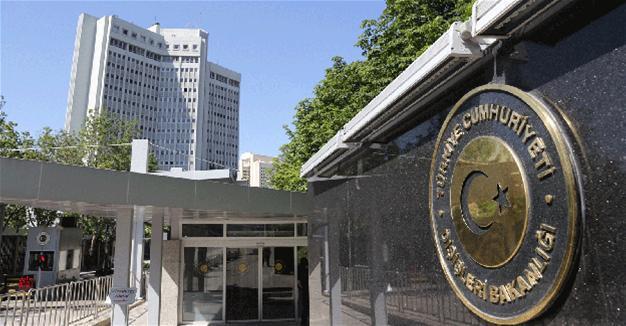Turkey warns Greek Cyprus against hydrocarbon-related acts
ANKARA

Turkey warned the Greek Cypriot administration over its hydrocarbon-related activities in the Eastern Mediterranean late on July 13.
“We are closely following the Greek Cypriot administration’s ongoing unilateral hydrocarbon-related activities, which disregard the inalienable rights on natural resources of the Turkish Cypriot people, the co-owners of the Island,” the Turkish Foreign Ministry said in a statement.
A drilling vessel has arrived in the region to begin works in the context of the licenses unilaterally issued by the Greek Cypriot administration, according to the statement.
The talks to reunify the island of Cyprus recently ended in failure.
“Turkey is determined to protect both its own rights and interests in its continental shelf and to continue its support to the Turkish Cypriot side,” it said.
Earlier, Cyprus said it will go ahead with exploratory drilling for untapped oil and gas reserves off its southern shores despite Turkish demands for it to cease operations.
The Greek Cypriot Energy Minister said he was unperturbed by Ankara’s stance.
“We are prepared for various scenarios,” George Lakkotrypis told a state-run radio.
“Our perception is that Turkey will continue to challenge us one way or the other,” he added.
“It is more appropriate to focus on what we do and the best answer is to keep a low tone and respond, through our actions at sea,” he said.
The dispute comes as the West Capella drilling rig is in place to begin test drilling off Cyprus.
A joint venture between French energy giant TOTAL and Italy’s ENI could start the test drilling on July 14.
Results from the drill are expected to conclude by mid-September, said the minister.
“There is a sense of relief that everything has started off on the right foot,” said Lakkotrypis.
“Because we can see the geological structure through the seismic charts, if there is a discovery we do not expect it to be a large one,” he added.
The Eastern Mediterranean island has been divided since 1974, when a Greek Cypriot coup was followed by violence against the island’s Turks, and Ankara’s intervention as a guarantor power.
Representatives from the EU, the Turkish and Greek Cypriot leaderships, and the guarantor nations of Turkey, Greece and the U.K. participated in the discussions that began at the end of last month to resolve the dispute.
The U.N. sought a peace deal to unite Cyprus under a federal umbrella that could also define the future of Europe’s relations with Turkey.
 Turkey warned the Greek Cypriot administration over its hydrocarbon-related activities in the Eastern Mediterranean late on July 13.
Turkey warned the Greek Cypriot administration over its hydrocarbon-related activities in the Eastern Mediterranean late on July 13.